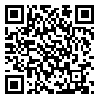Volume 2, Issue 3 (Summer 2014-- 2014)
PCP 2014, 2(3): 211-219 |
Back to browse issues page
Download citation:
BibTeX | RIS | EndNote | Medlars | ProCite | Reference Manager | RefWorks
Send citation to:



BibTeX | RIS | EndNote | Medlars | ProCite | Reference Manager | RefWorks
Send citation to:
Rezaei Dogaheh E, Yoosefi A, Kami M. Comparison of Maladaptive Coping Styles in Patients with Migraine and Tension Headaches with Normal Group. PCP 2014; 2 (3) :211-219
URL: http://jpcp.uswr.ac.ir/article-1-233-en.html
URL: http://jpcp.uswr.ac.ir/article-1-233-en.html
1- Department of Clinical Psychology, University of Social Welfare and Rehabilitation Sciences, Tehran, Iran.
Abstract: (5758 Views)
Objective: Young’s schema theory provides a theoretical basis that relates coping styles to early maladaptive schemas. This research aimed to identify maladaptive coping strategies including avoidance and over compensation strategies associated with migraine and tension headaches.
Methods: The present research was of cross sectional and correlational study type. The measures included Headache Disability Inventory and Avoidance and Over Compensation Questionnaires. The population of the study comprised adult patients with migraine and tension headaches aged 18 to 55 years living in Tehran, Iran. The final study sample included 69 participants with migraine or tension headaches and 86 non-clinical samples of both genders. They were selected by convenient and purposeful sampling after referring by psychiatrists. The two groups were matched based on sex and education.
Results: Migraine and tension headache sufferers and non-clinical participants were significantly different in 9 avoidance strategies. There were also a negative correlation between headache and 2 overcompensation styles. In addition, a series of maladaptive coping (avoidance and overcompensation) strategies could significantly predict 84.1% and 70.4% of the total change in position of tension headaches and migraine group, respectively.
conclusion: It seems that maladaptive coping strategies are important factors influencing migraine and tension headaches. The implications of the findings for both theory and treatment concerning are discussed, along with suggestions for future research.
Type of Study: Original Research Article |
Subject:
Cognitive behavioral
Received: 2014/03/7 | Accepted: 2014/06/12 | Published: 2014/07/1
Received: 2014/03/7 | Accepted: 2014/06/12 | Published: 2014/07/1
| Rights and permissions | |
 |
This work is licensed under a Creative Commons Attribution-NonCommercial 4.0 International License. |





